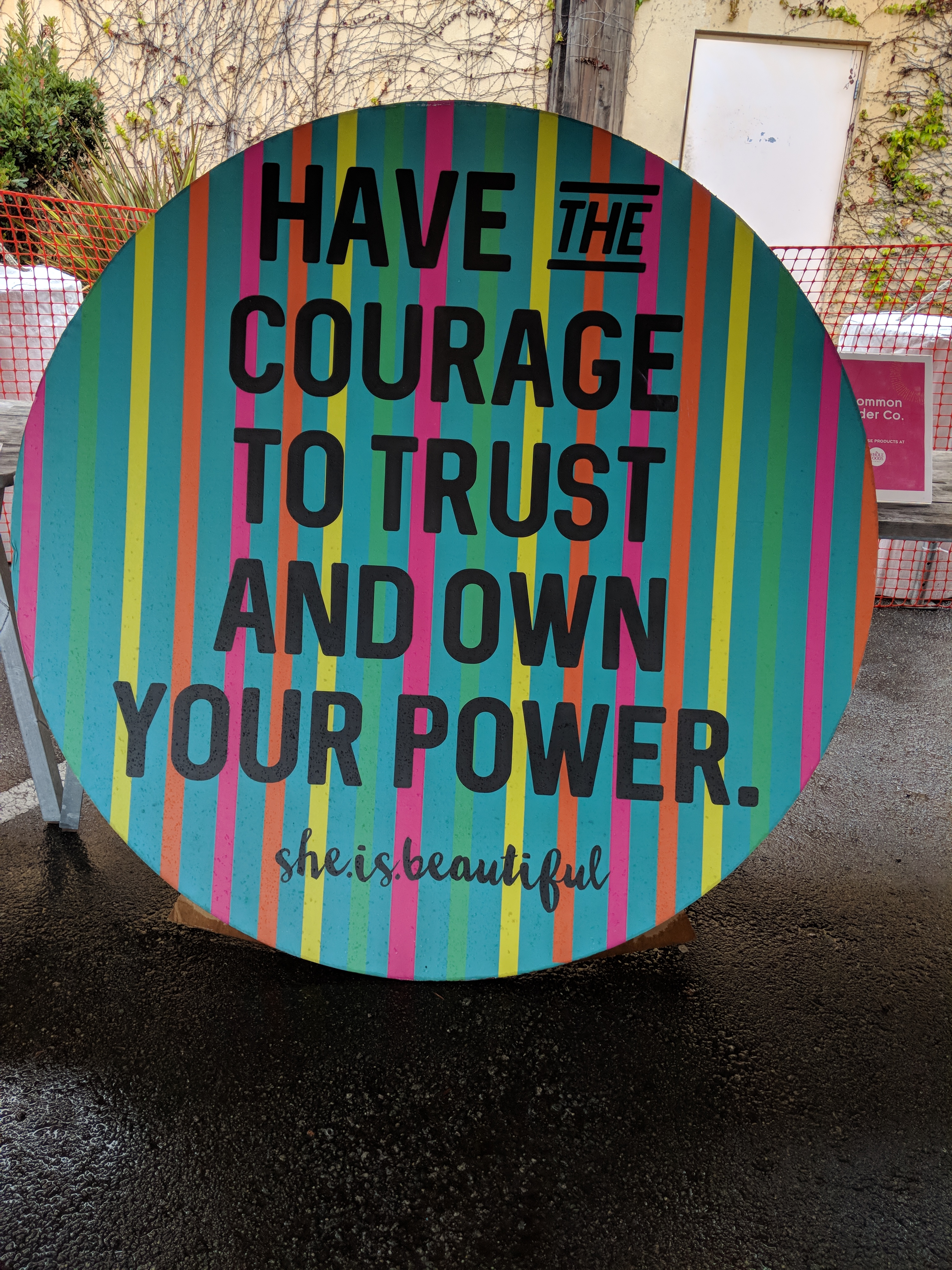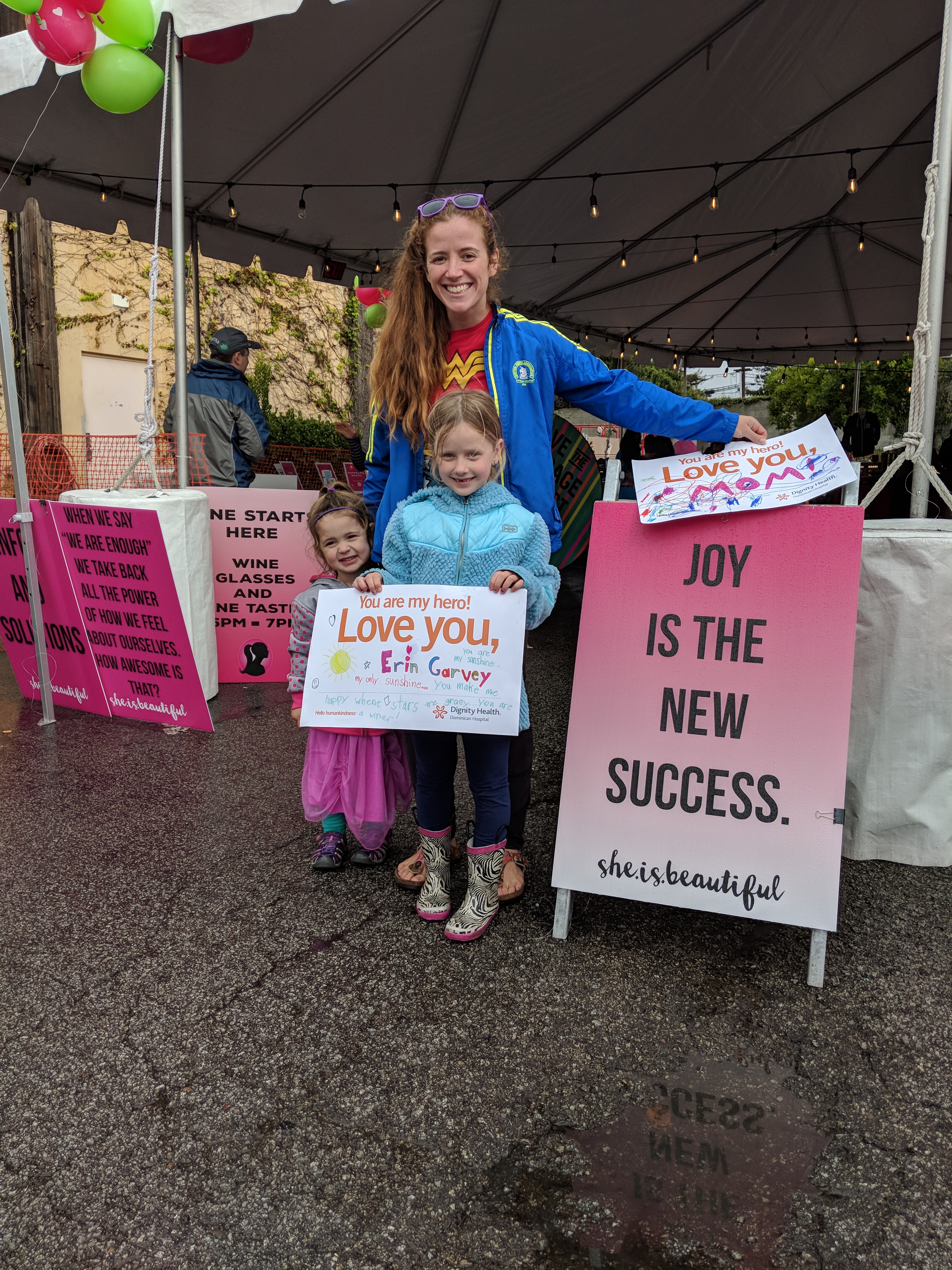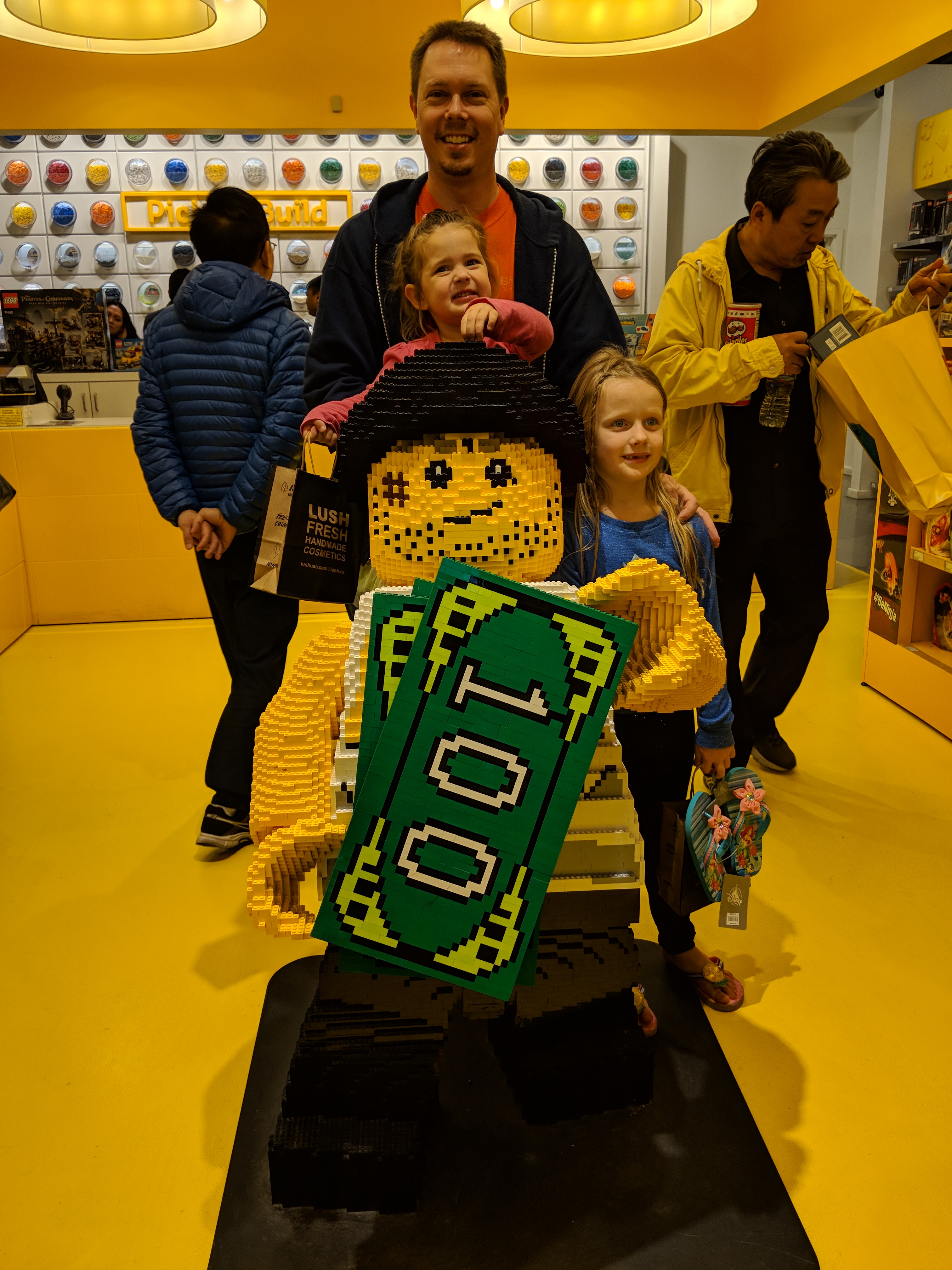March 2018 training recap
That saying that claims if March comes in like a lion, it’ll go out like a lamb (or vice versa) only generically applied to my March, I suppose. Shoot, realistically speaking, after coming off the stroke in early February and slowly but surely beginning to piece life together after that, I would have been more than satisfied to have March enter slowly and quietly, without much fanfare, if it meant that life was going to be normal as usual — or pretty close to it, anyway. I had more action in February than I would have cared to, so lamb, lion, meerkat, or protozoa notwithstanding — I’m not picky — I just really hoped that March would be unremarkable — that magic word — and that it’d more often than not resemble, and be indicative of, normalcy.
Fortunately, that was the case. March began, of course, with my repeat MRI scan on 3/3, nearly a month out from my stroke, whose results, eventually interpreted by my neurologist, showed to be unremarkable — or in other words, not anything to be excited about. I wrote about it earlier in the month, but honest to sweet baby Jesus, I was never/have never been so excited to be ruled boring. The day after my MRI, I spent my morning volunteering in the streets of the Rose Garden neighborhood with my Wolfpack teammates for the 408k, and sure enough, just a couple days later, on March 7, exactly 4.5 weeks post-stroke, I got the all-clear to begin running, lifting, picking up my kids, and to generally begin doing life per yoosh again.
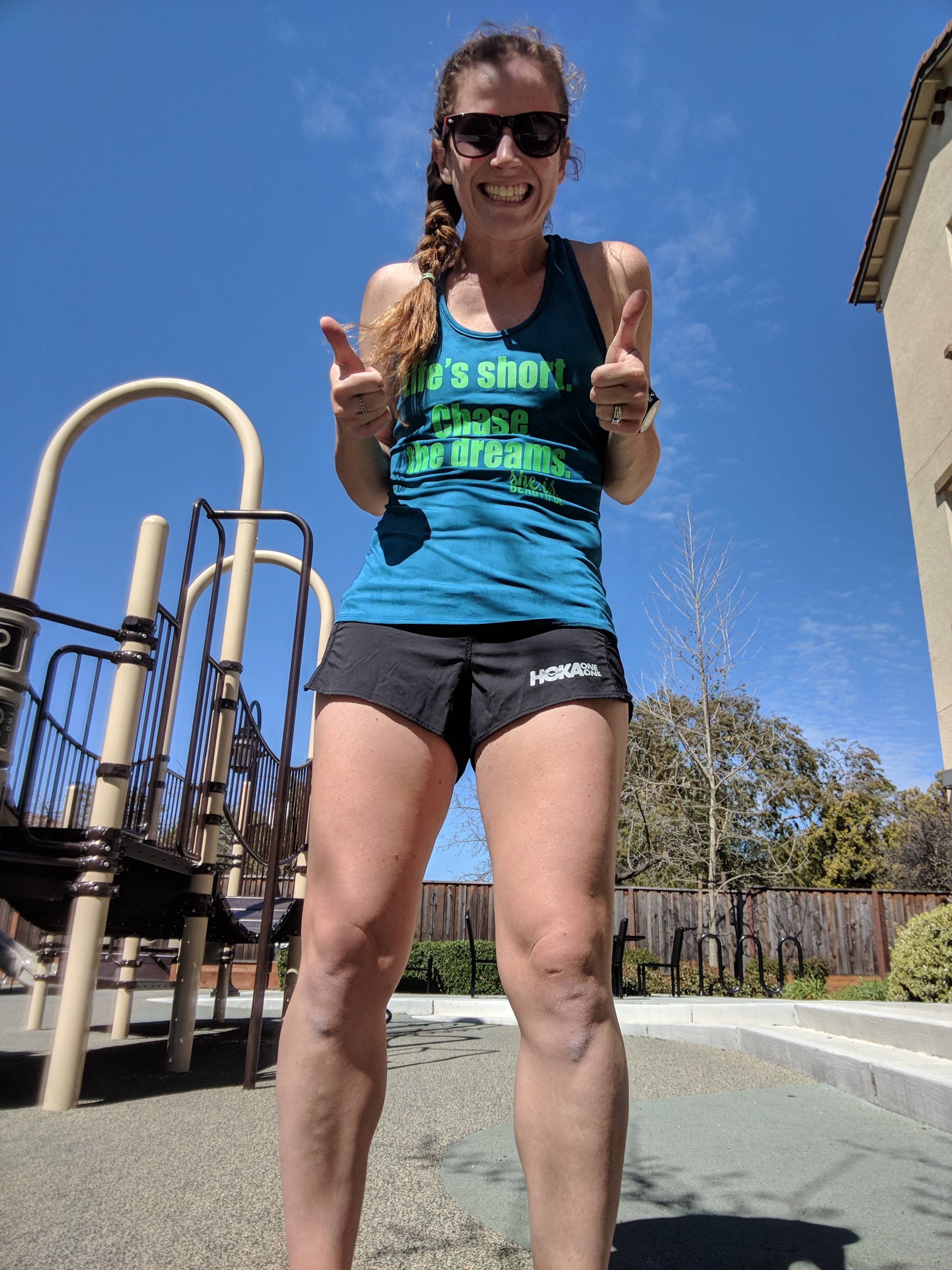
I was going to write a separate post about what my running has looked like post-stroke, and I probably will still, but I’ll also talk about it here, briefly. This is redundant and probably a bit obnoxious and self-evident, but the thing about running after stroke is that there’s obviously not a one-size-fits-all formula to heed. Each person’s stroke can vary tremendously — as well as all the short- or long-term stroke-related sequelae — that googling “how to run after stroke” is a hefty exercise in futility. My experience with this — again, based on my own stroke (somewhat obvious, yes, but still probably worthwhile to remember) and based on what my own running looked like pre-stroke — kinda makes me liken post-stroke running to postpartum running.
More than anything, it boils down to listening to your body each and every day.
I have been/was so remarkably lucky with my stroke insofar as I don’t have any deficits that could affect my ability to run, at least as far as physical limitations go. (The mental side is another story for another day, but even there, running helps tremendously). However, when I had my stroke, I had basically gone from consistently running a solid mileage volume each week to ZERO and stayed there for 4.5 weeks. I still walked a bunch, walked up and down the stairs at home several times a day, and did all “life-related” physical activity (sans picking up children or anything else heavy), but when I began running, I all but assumed I was starting from scratch. That’s what it felt like, anyways.
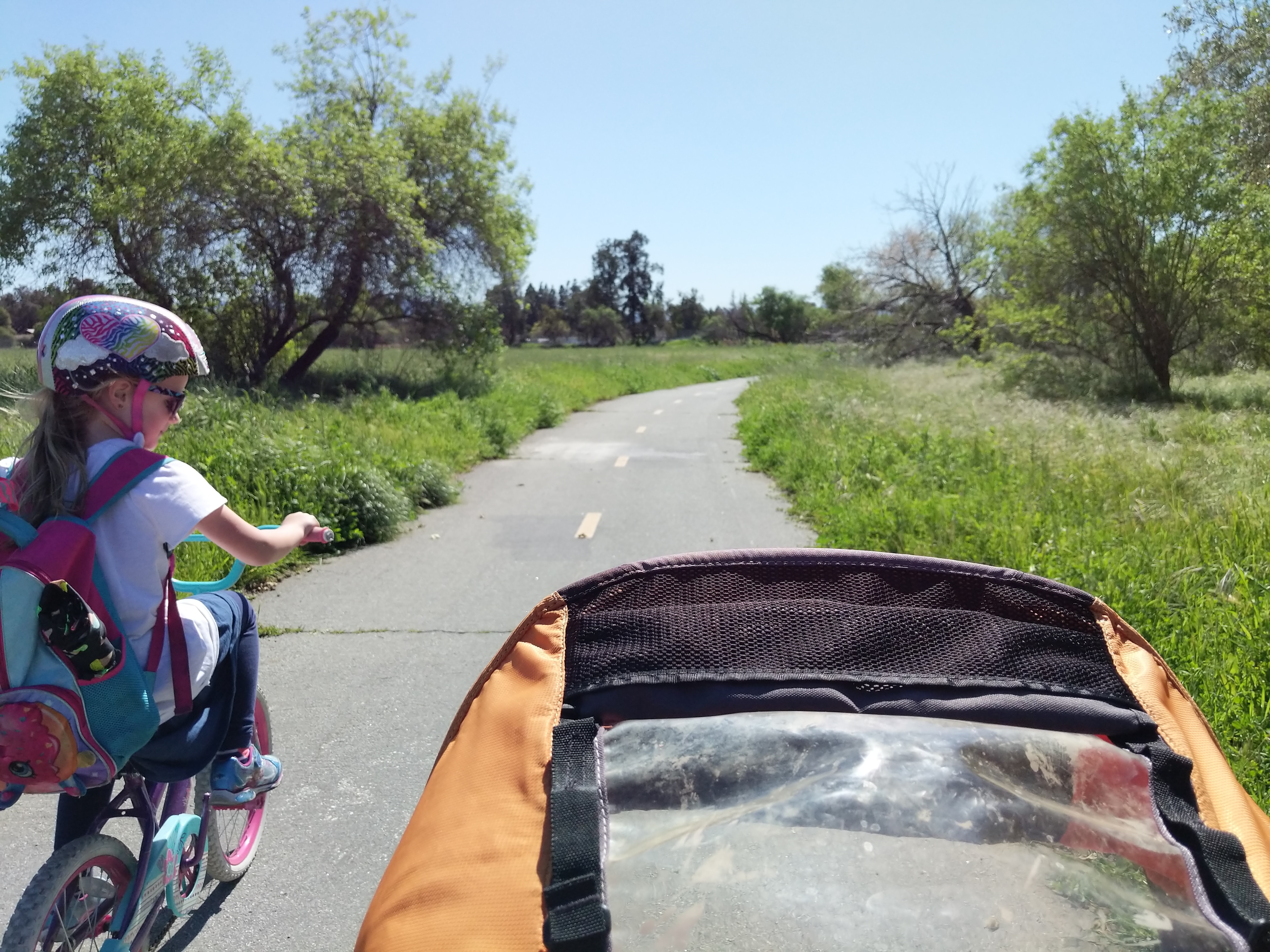
Right now, I’m just shy of 8 weeks post-stroke, which means that I’ve been running for 3.5 weeks. Generally speaking, I’m taking more rest days than I usually would (out of an abundance of caution); my “long runs” on the weekend are more time-based than anything and progress only if I’m feeling well and am interested in the effort (which is still very comfortable and casual); and finally, I’ve been much more deliberate about all the ancillary things — such as lifting, rolling, self-massage, and all that good stuff — than I have been in a long time. Pre-stroke, it was rare for me to feel especially sore after a run (beyond racing), but right now, as I’m working to get into shape, I feel like I’m sore all the time, like the way you feel when you’re running for the very first time in your life and you wonder if you’ll ever feel not sore.
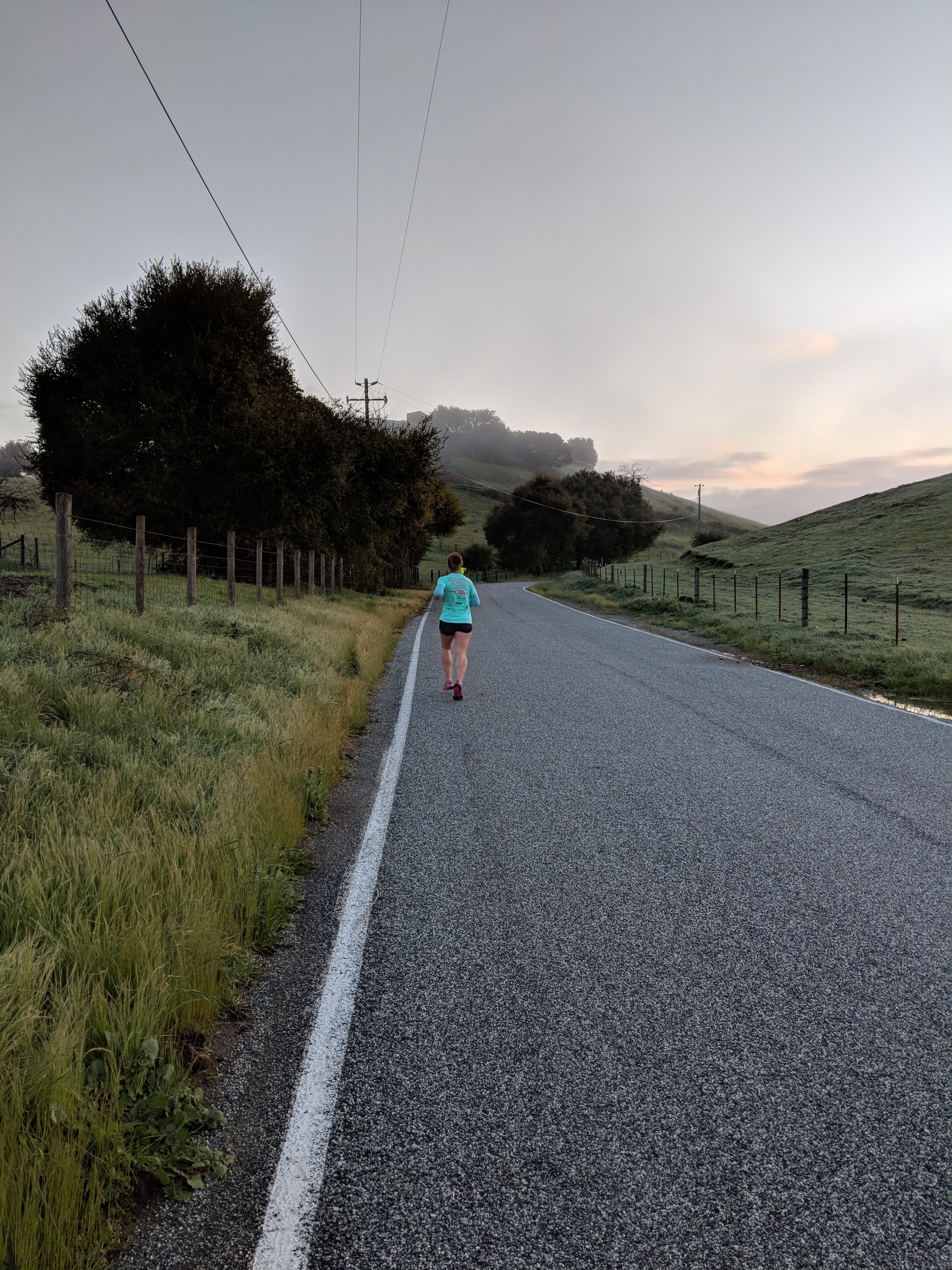
Listening to your body and consequently running by feel is as good a way to run and get into shape as any, in my opinion. When you’re in the thick of marathon training, for example, it can seem counterintuitive to sometimes abandon the plan, yet I think taking the bigger-picture view can pay dividends. One missed or altered run isn’t going to make or break your race day performance; on the other hand, a handful of runs that you power through, even when you’re feeling sub-par or on the brink of something, can. That’s my soapbox, anyway.
And sometimes, I think one of the best things we can do for ourselves — particularly if we’re working through a funk — is to venture outside ourselves and be immersed in good vibes, and races sure are excellent avenues for that. Just a couple weeks after I began running, G and I went down to Santa Cruz to race in she.is.beautiful’s baby mama 10k division. The upshot is that it was a lovely morning and something equally positive for my soul and for my brain. Good people in a good environment? You can’t go wrong. I knew I wasn’t in “racing shape,” (duh) and that it’d be hard-in-a-good-way, but I didn’t care. Immersing myself in my supportive community has been really helpful, and when I’m feeling really low (or angry or otherwise off-kilter) about everything, remembering that there are people out there who are rooting for me means a lot.
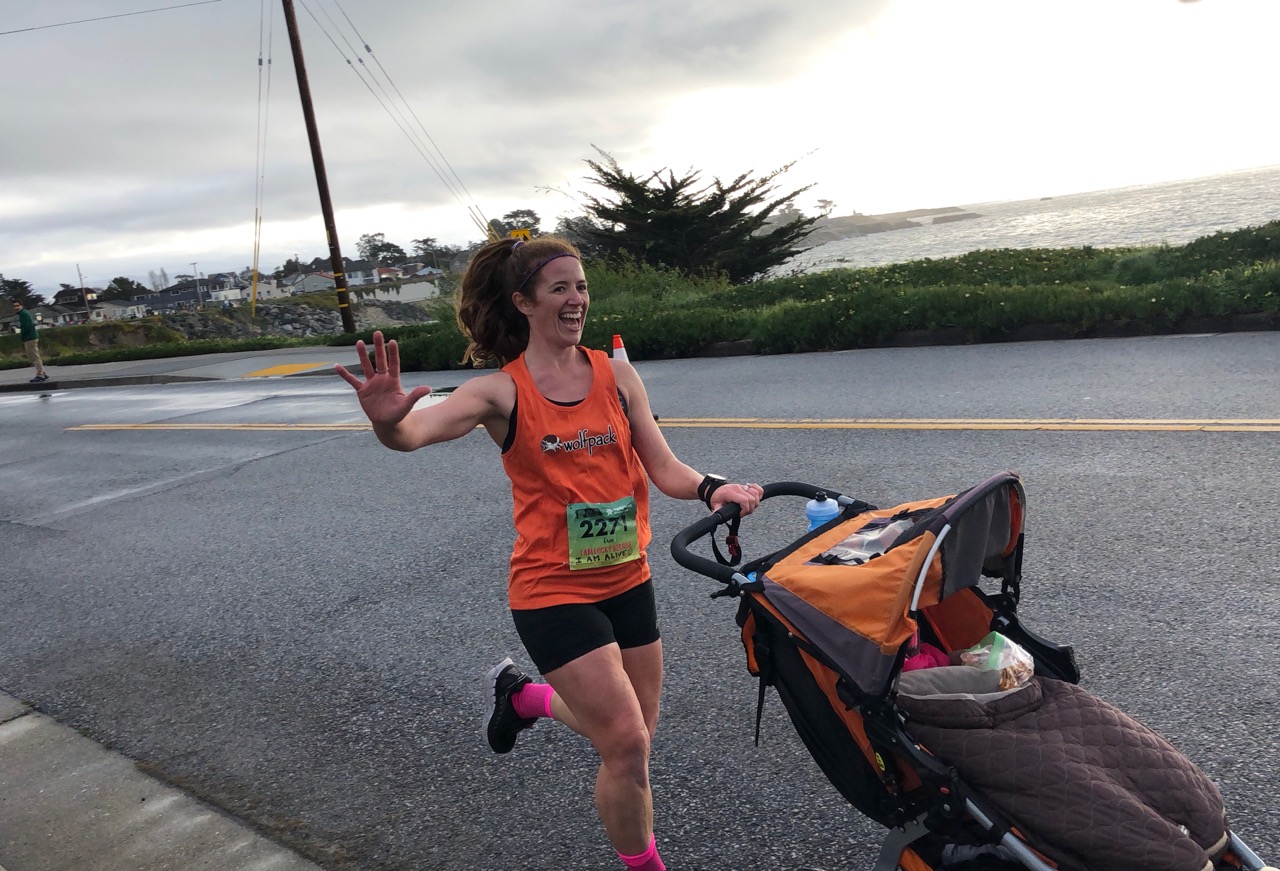
Suffice it to say that March was a step in the right direction. Getting the good news from my neurologist, going to counseling, getting all my other medical issues in order and seeing all the concomitant specialists, resuming running (just cracked 100 miles for the month, hooray!), reading and writing a bunch, spending lots of time with my family — and more stuff that I’m surely omitting — makes me feel optimistic for April and for the rest of the year. It can be easy to negatively, quickly, and catastrophically spiral when I have a rough day, but most of the time, I have many more good days than I do rough.
I can’t complain. I am so, so lucky and so enormously grateful.
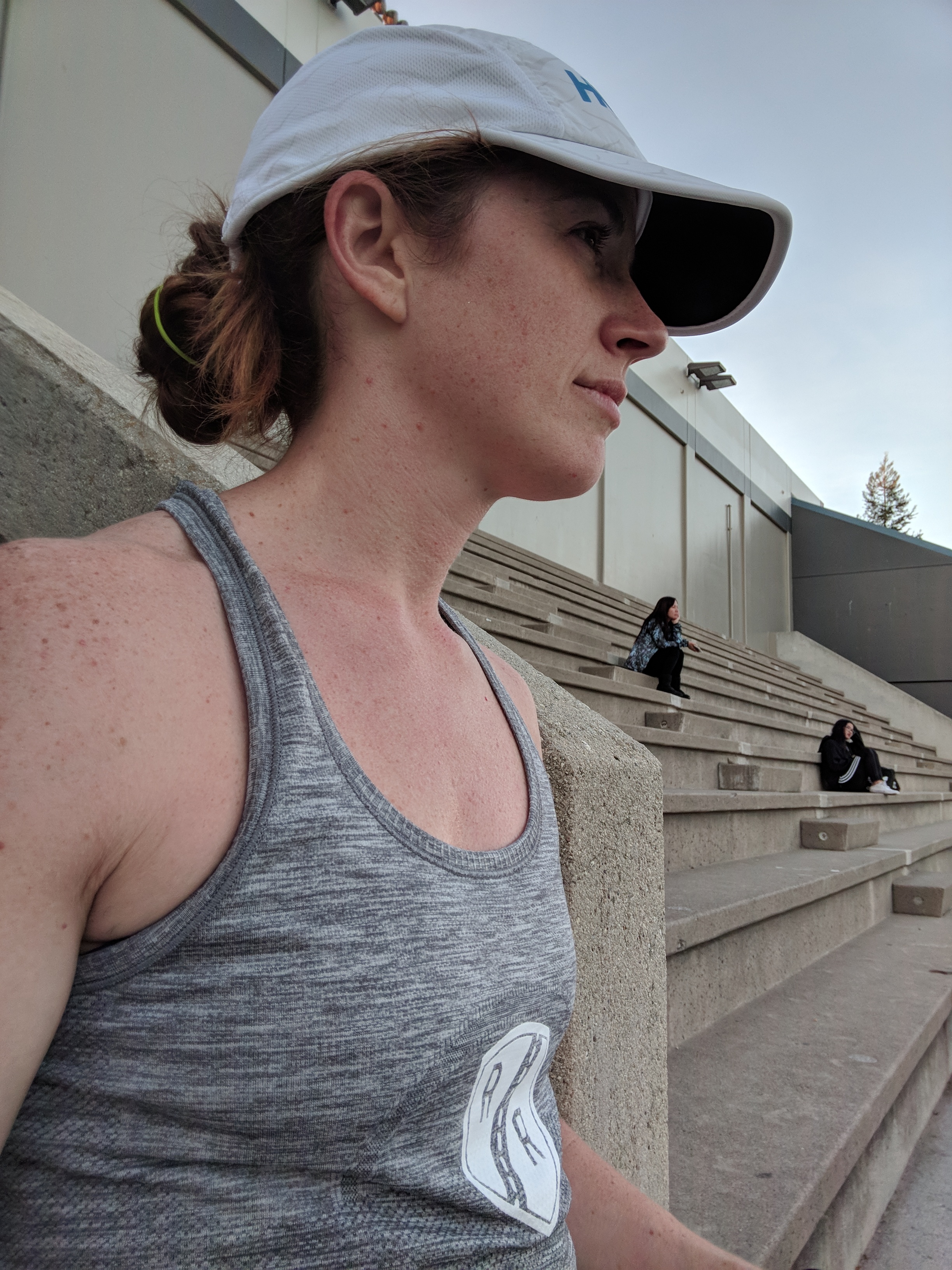
—————————————————————–
Reading: March had a lot of good stuff: When: the Scientific Secrets of Perfect Timing, which was a fast and interesting read about our chronotypes and how timing is everything (or “the only thing,” as the author would assert); Why Buddhism is True: the Science and Philosophy of Meditation and Enlightenment, a shittily-titled book but one that was full of insightful and fairly compelling information related to Vipassana Buddhism and the case for meditation, among other things; Everything Happens for a Reason (and Other Lies I’ve Loved), which was both entertaining and heartbreaking (and one that a critic aptly described as being “a love letter to life”); and finally, A Man Called Ove, which repeatedly surprised and emotionally drew me in more times than not and that challenged my “I don’t really like fiction anymore” attitude. Lots of good stuff this month, to be sure, and I’ve got a hefty pile on deck already for April. There aren’t enough hours in the day for all the reading, running, and writing I’d love to do. Oh, and one last one – the Peak Performance newsletter. I loved the book, and the newsletter is equally excellent.
Writing: March brought a lot of ghostwriting opportunities again, which I appreciated. It’s either feast or famine with that stuff, it seems.
Racing: March featured SIB 10k pushing G, and April will hopefully bring with it Sactown 10 miler (a PA race), the inaugural Silicon Valley 5k and half marathon, and Stow Lake 5k (another PA race). Pre-stroke I had lofty goals for an audacious and arduous spring racing season, but now I’m gravitating toward getting strong and confident again in the spring (and training through the racing atmosphere) and going for total world domination in the autumn. If nothing else, I’m patient and ready (and willing) to work. Time off — whether forced or voluntary — has a way of doing that to a person.
Watching: I’m veritable decades behind anything of interest or relevance here. Decades. That said, many people in my household are genuinely excited that the new series of A Series of Unfortunate Events came out on Netflix on 3/30.
Listening: I’ve enjoyed the few podcasts from Mario Fraioli’s The Morning Shakeout that I’ve heard so far, namely with Meb Keflezighi, Des Linden, and Shalane Flanagan. Ali On the Run had an excellent podcast interview recently, too, with Gabe Grunewald that pretty much left me speechless and with an entirely new perspective on just about everything. I’d highly recommend these four interviews in particular.
Using: Marco Polo, the app. It’s wonderful and has allowed my DePaul undergrad BFFs and me to stay in contact so easily that I feel compelled to give the app dev a huge hug or high-five or something. What a game-changer.
Anticipating: I feel like once April hits — and parents of school-aged children will agree with me here — that we just barrel toward the end of the school-year with furor. All of the great end-of-the-school-year stuff will be here before we know it — family birthdays, end-of-school-year celebrations, a Girl Scout bridging ceremony, and more that I’m surely forgetting — and then it’ll be summer and 1000 degrees outside and I’ll be wondering how time seemed to move so quickly all of a sudden. That’s how it always seems to happen in these parts, anyway. A has her first tri of the year in April, too, so that’ll be super exciting!
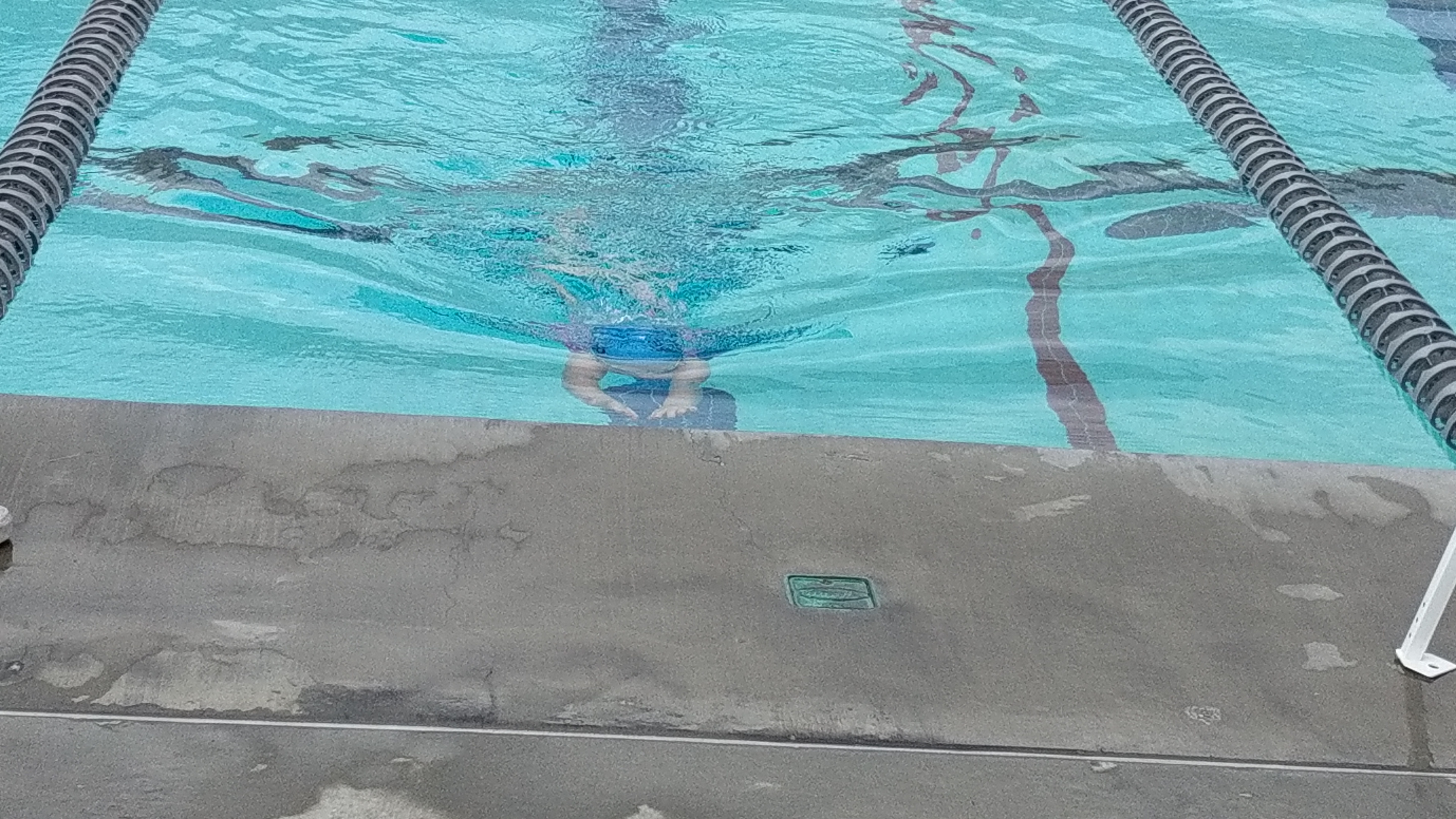
Spring, she is a-coming; here we go.
